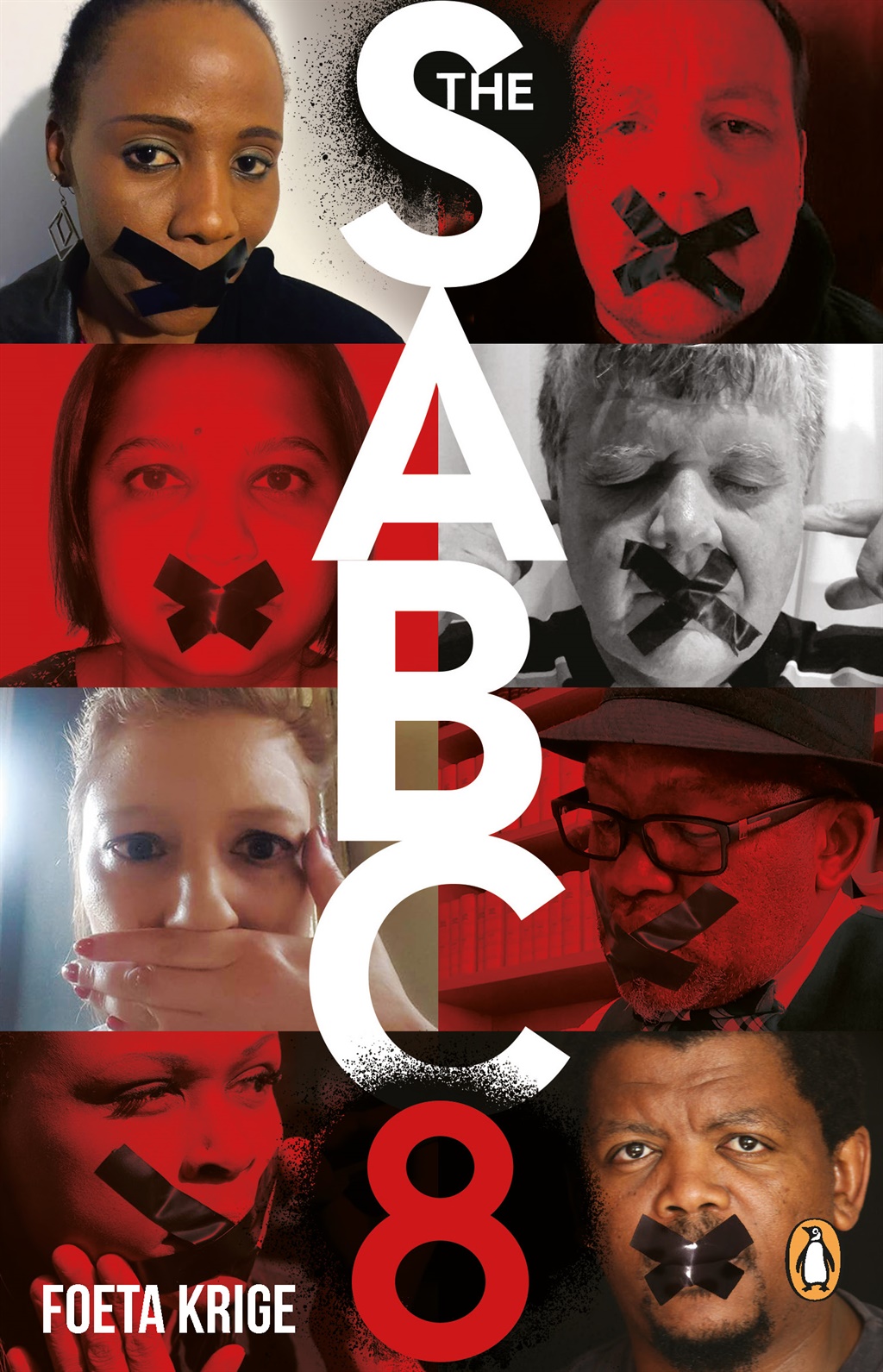
By the beginning of 2016, the capture of the SABC newsroom was almost complete. After years of scheming and conniving, the pawns were in place and the August local government elections were looming. The only remaining obstacle in [Hlaudi] Motsoeneng's way was a 2004 editorial policy that gave the CEO, and not the COO, the responsibility of editor-in-chief.
On 26 February, I was in Cape Town for the finance minister's budget reading when I received a WhatsApp message from my senior producer, Suna Venter. She was attending the morning line talk in Auckland Park, where the different regions and specialist desks of the news division discuss the proposed news stories of the day. The economics editor of news, Thandeka Gqubule, was also in attendance. She told those gathered that she had received instructions from the highest level not to use any vox pops for the budget. Suna told me that it was a heated line talk with lots of screaming.
There were even proposals for the line talk to be cancelled, she wrote, adding that Thandeka was furious, in capital letters.
I replied: 'Hoekom is hulle bang vir vox pops? Daar was tog goeie reax op die budget?' (Why are they scared of vox pops? There was good reaction to the budget?)
She replied with one word or rather one name: '#jimmylogic'. Jimi Matthews was acting GCEO at the time.
A few minutes later I asked for an update: 'Wat is toe besluit? Vox pops of nie?' (What have they decided? Vox pops or not?)
We were not allowed to use vox pops, I was informed.
The incident left me confused and perturbed. Vox pop is an established and frequently used tool in journalism to gauge the informal opinions of ordinary people. As such, it provides a snapshot of public opinion. Vox pop is a means to take the story away from the 'suits' and 'talking heads', and get input from people on the street. The decision not to use it reminded me of the day when I was instructed not to cover any Economic Freedom Fighters (EFF) stories on my programmes.
It was in early February 2014, three months before the general election and seven months after the launch of the EFF under the leadership of outspoken expelled ANC Youth League leader Julius Malema. It was early in the day when Sebolelo Ditlhakanyane, by then the acting head of radio news, came to my office. She said she had just returned from a meeting where it was decided that the SABC would not give any further coverage to the EFF. I was flabbergasted. Not only did this constitute a breach of our editorial policy, but also of the regulations of the Independent Communications Authority of South Africa (ICASA), a chapter nine institution and the official regulator of communications and broadcasting in South Africa.
I told Ditlhakanyane that it would not be possible to ignore a political party and that, in fact, we had already lined up an interview for our next actuality show broadcast. She was openly nervous, but at the same time adamant that we had to follow the instructions from management. I informed her that we would continue with our planned broadcast of the interview, as well as coverage of EFF events.
Ten minutes later, my phone rang. It was the office of Jimi Matthews, head of TV news and acting GE of News, summoning me to a meeting. In Ditlhakanyane's presence, Matthews gave me a speech about my refusal to conform to the rest of the SABC. He accused me and my team of believing we were an island.
'There will be no discussion,' he told me. 'Sebolelo is your line manager. If she gives an instruction, you will do it!' I tried to argue, explaining that what was happening was reminiscent of apartheid censorship. 'Don't you talk to me about apartheid,' he exploded. 'You people, what did you do to change things? You will take instructions from Sebolelo!'
I stood up from my chair, realising that any further discussion would be futile. 'If she gives me an instruction, I will listen, evaluate and act accordingly. I know you are very busy, so I will leave you now,' I said before walking out of his office.
Shortly after our meeting, the SABC released a statement denying that there was a ban on the broadcast of EFF activities. Three months later, Malema and his EFF participated in their first general election, winning 6.3 per cent of the country's vote. Matthews never discussed the issue with me again. After his resignation in 2016, however, he confirmed that instructions had indeed been issued not to give airtime to the EFF.
It is therefore not difficult to understand why I was so uneasy two years later about the decision not to use vox pops, again just a few months before an election. Furthermore, it now seemed the instructions were coming from the twenty-seventh floor, the location of the office of the COO, an individual who supposedly had nothing to do with editorial content.
The pieces fell into place three months later, at the beginning of May 2016, when it emerged that a new, revised editorial policy for the public broadcaster had been approved in secret. The new policy made the COO, Hlaudi Motsoeneng, the SABC's editor-in-chief and gave him control over all news and content.
As part of the news management team, I had been involved in various meetings over the years with Graham Welch, the SABC's general manager of editorial policy and governance, to discuss changes to the 2004 editorial policy. In principle, there were no problems with the existing policy, but we knew the changing media landscape and the emergence of social media and digital platforms necessitated adjustments. Welch assured us that we would have more meetings before the amendments and changes were finalised.
That never happened. Responding to a question from the DA in Parliament in May 2016, communications minister Faith Muthambi announced that the policy had been signed off in February already. What she failed to disclose was that this revised and secretly approved policy made upward referral mandatory and transferred the role and duties of the broadcaster's editor-in-chief from the CEO to the COO.
According to the old policy of upward referral, the onus was on individual journalists and, ultimately, executive producers to make sound ethical and editorial judgements and decisions. It was only when there was doubt that a line manager higher up the hierarchy had to be consulted. According to the new policy, upward referral was mandatory and Motsoeneng, as self-appointed editor-in-chief, now had the final say.
I browsed through the SABC intranet, our online internal communications site. The old editorial policy of 2004 was still listed. No word about the new policy had been conveyed to the editorial staff, and it wasn't mentioned in any media briefing. Even Welch, the person in charge of the revision process, claimed to have no knowledge of the changes and approval. He later told me that Motsoeneng had disbanded his revision team in February 2015, after which he lost track of the process.
The new policy resulted in an expected outcry from opposition parties and non-governmental organisations (NGOs), but to no avail. Motsoeneng was in full control of the SABC and its newsroom.
* This is an extract from SABC 8 by Foeta Krige, published by Penguin Random House.




 Publications
Publications
 Partners
Partners











